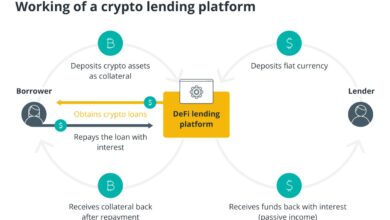
The Rise of Gig Economy Exploring Flexible Work Trends in the UK
In recent years, the landscape of work in the United Kingdom has witnessed a transformative shift with the emergence and proliferation of the gig economy. The gig economy represents a paradigmatic departure from traditional employment structures, offering a dynamic and flexible approach to work. This seismic change like work has been driven by technological advancements, changing workforce preferences, and evolving economic landscapes, revolutionizing how people earn a living and participate in the labor market.
Understanding the Gig Economy
The gig economy, characterized by short-term, freelance, or independent contract work, revolves around individuals offering their services or skills on a temporary or flexible basis. Platforms and apps serve as intermediaries connecting workers (often referred to as “gig workers”) with customers or clients seeking specific services, ranging from ride-sharing, food delivery, freelance writing, and graphic design, to various other professional services.
The Flexibility Paradigm
Flexibility stands as the cornerstone of the gig economy. It provides workers with autonomy over their schedules, allowing them to choose when, where, and how much they work. This level of freedom appeals to individuals seeking a work-life balance, supplemental income, or those preferring a non-traditional approach to employment.
For many, the gig economy offers an alternative to the rigidity of a traditional 9-to-5 job. It accommodates diverse needs, allowing individuals to pursue multiple gigs, balance work with personal commitments, or explore entrepreneurial ventures on their own terms.
Impact on the Labor Market

The gig economy has significantly altered the labor market dynamics in the UK. It has expanded employment opportunities, providing avenues for individuals who may face barriers to traditional employment, such as students, retirees, or those seeking flexible arrangements due to caregiving responsibilities.
Furthermore, the gig economy has reshaped the concept of work relationships. It has blurred the lines between employer and employee, giving rise to a more transactional relationship between gig workers and the platforms they work for. This shift challenges conventional notions of labor rights, benefits, and job security, sparking debates on the need for updated regulations to protect gig workers’ rights.
Technological Enablers
The proliferation of digital platforms and technological advancements has been instrumental in fueling the growth of the gig economy in the UK. Apps and online platforms serve as the primary conduits for connecting gig workers with customers or clients, facilitating seamless transactions, and enabling efficient communication and coordination.
This technological integration has democratized access to work, allowing individuals to leverage their skills or assets to generate income, all within the convenience of a few taps on a smartphone or computer.
Challenges and Controversies

Despite its appeal, the gig economy is not without its challenges and controversies. One of the primary concerns revolves around employment rights and protections. Gig workers, often classified as independent contractors, may miss out on traditional employment benefits such as sick pay, pension contributions, and job security, raising questions about their welfare and financial stability.
Additionally, there have been ongoing debates regarding the classification of gig workers. The distinction between independent contractors and employees becomes contentious, as some argue that certain gig workers should be entitled to more rights and protections typically associated with traditional employment.
Skilled Worker Visa and the Gig Economy
The UK Skilled Worker Visa program has a notable connection to the evolving nature of work within the gig economy in the UK. As the gig economy expands and creates opportunities for flexible work arrangements, employers often seek specific skills or expertise that might not be readily available within the local labor market. The Skilled Worker Visa program enables UK employers to recruit individuals with specialized skills from overseas to fill these gaps, contributing to the diverse talent pool necessary for the gig economy’s growth.
Gig economy platforms and tech-driven enterprises, which often rely on a diverse range of skills and services, might leverage the Skilled Worker Visa program to access a global talent pool. This visa category allows individuals with sought-after skills to contribute to the gig economy in the UK, either by providing specialized services through digital platforms or by supporting tech-driven innovation and entrepreneurship.
Moreover, the flexibility inherent in the gig economy aligns with the nature of work permitted under the Skilled Worker Visa. The visa program recognizes the value of flexible employment opportunities and entrepreneurial endeavors, enabling sponsored individuals to engage in a variety of professional pursuits, including gig work, freelance projects, or collaborative ventures.
The intersection between the gig economy and the Skilled Worker Visa underscores the importance of fostering a diverse and skilled workforce to support the evolving needs of the UK’s labor market. It highlights the role of immigration policies in facilitating access to talent, fostering innovation, and contributing to the dynamism of the gig economy, while also ensuring compliance with regulatory requirements and the protection of workers’ rights.
As the gig economy continues to thrive and reshape the future of work in the UK, the Skilled Worker Visa program stands as a means to attract and retain talent, promoting economic growth, innovation, and the sustenance of a vibrant and competitive labor market in an increasingly interconnected global landscape.

Regulatory Response and Future Prospects
The rise of the gig economy has prompted regulatory scrutiny and calls for legislative changes to address the rights and protections of gig workers. The UK government has taken steps to review and adapt employment laws, aiming to strike a balance between fostering flexibility and ensuring adequate safeguards for gig workers.
Looking ahead, the gig economy is poised to continue evolving, presenting both opportunities and challenges. The future of work in the UK will likely involve a blend of traditional employment models and gig work, as the workforce seeks flexibility, adaptability, and diverse avenues for income generation.
In conclusion, the gig economy represents a transformative force reshaping the contours of work in the UK. It offers unprecedented flexibility, empowerment, and opportunities for individuals to craft their work lives according to their preferences. Yet, it also brings to the forefront pertinent questions about labor rights, protections, and the need for a regulatory framework that ensures a fair and equitable environment for all participants. As the gig economy continues to unfold, its impact on the UK labor market and society at large remains an area of ongoing exploration and discussion.




